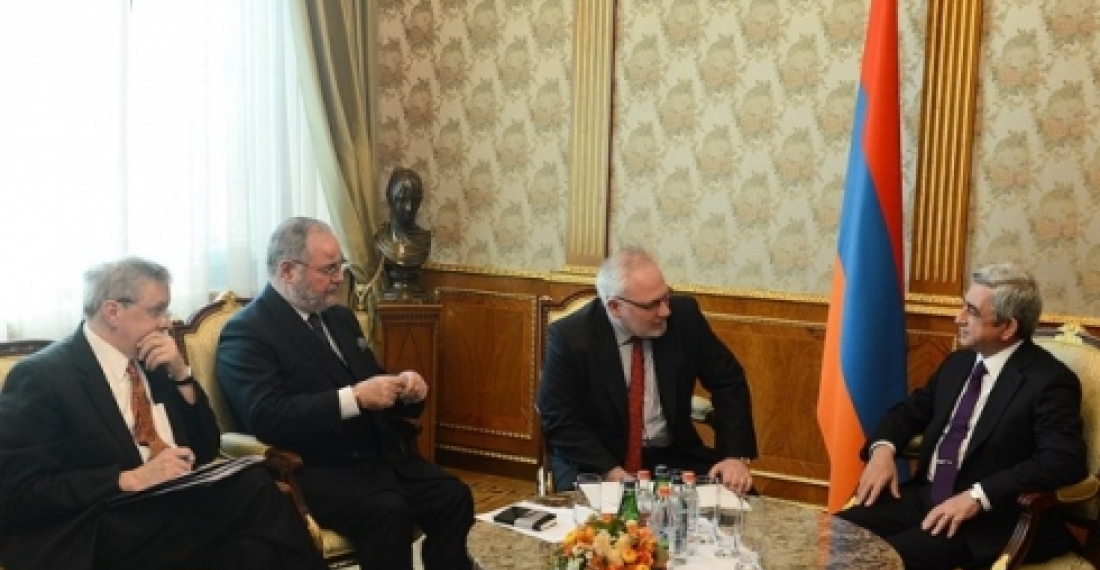The Armenian President, Serzh Sargsyan, today met in Yerevan with diplomats from France, Russia and the United States, representing the three countries that co-Chair the OSCE Minsk Process mandated to facilitate a resolution of the Nagorno-Karabakh conflict.
The diplomats are in the region in an effort to find common ground that would enable a resumption of the negoitiations between Armenia and Azerbaijan on the settlement of the Karabakh conflict. However it is also understood that the mediators are also trying to put forward some practical suggestions regarding the opening of the airport in Nagorno-Karabakh. The airports is admninistered by the self declared Nagorno-Karabakh Republic but Azerbaijan has insisted that it will not allow flights to operate from the airport without its permission. The Minsk group diplomats are understood to have offered the sides some suggestions how the airport could be operated with the agreement of all sides, but no details are available.
source: commonspace.eu with agencies.
photo: President Sargsyan with diplomats from the OSCE Minsk Group co-chair countries in Yerevan on 21 March 2013. (picture courtesy of the Press Service of the President of Armenia).







